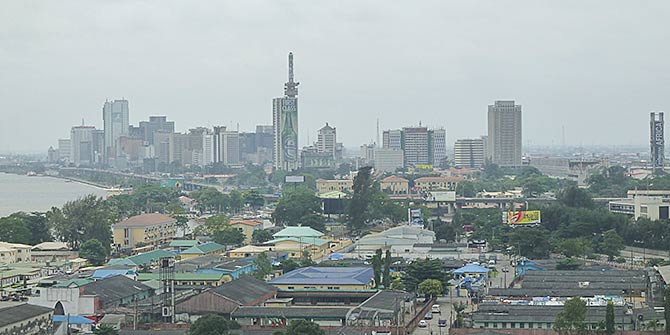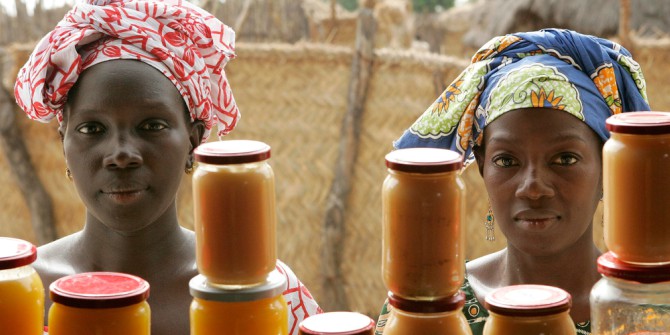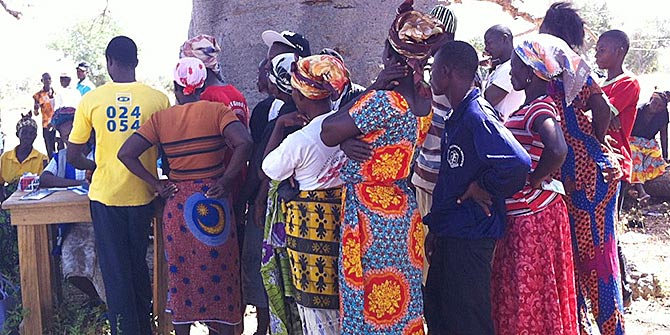In this article, Kristof Titeca argues that although international law claims to apply universal justice, it still seems underequipped in dealing with spirits and the supernatural, which are ironically an integral part of the lives of the many people caught up in trial, like Dominic Ongwen, a former child soldier of the LRA.
Otim (pseudonym) is a former child soldier of the Lord’s Resistance Army, the Ugandan rebel movement, led by Joseph Kony. On the battlefield, Otim believed spirits rendered him bulletproof. They spoke to him in dreams and allowed him to see the future, albeit a limited one with no hope of escape. When the bullets finally hit Otim, there could be only one explanation: he had disobeyed Kony’s spirits.
Kony’s command over his soldiers extends into the realm of metaphysics: he claims to be possessed by a range of spirits. Spirit possession has a long history in Northern Uganda, but Kony is considered to be possessed by particularly powerful spirits, allowing him to predict the future, heal the sick, and read minds- qualities that intimidate many combatants like Otim who were abducted at a young age.
I have interacted with Otim for several years and his experiences may tell us something of another former abducted child: Dominic Ongwen. Abducted at 9, Ongwen now stands trial for 70 counts of crimes against humanity and war crimes at the International Criminal Court (ICC).
Much media attention has been given to the suitability of the ICC to judge Ongwen due to his status as both victim and perpetrator. Some ask whether a former child soldier should be held responsible for his actions after unspeakable trauma; still, others question why Ongwen should be on trial in the first place as many in his position were given amnesty by the Ugandan government. Much of the trial, therefore, hinges on individual responsibility in the structural production of violence. Concretely, the defence is exploring and testing the boundaries of a duress argument: Ongwen, they argue, had no choice but to follow Kony’s orders. He had been abducted and indoctrinated as a child. As an adult, he was under continuous military threat. Those caught escaping were killed, and those who managed to escape could have their families killed. Also, the spiritual aspect plays a role, they argue: Ongwen was abducted and indoctrinated as a child, and Kony’s use of the spirits allowed to control Ongwen’s mind. Moreover, research has shown how many soldiers never contemplated escape because the spirits could reveal their secret hope to Kony. As a result, the spiritual elements of the LRA have become a prominent aspect of the trial since the Defense began its case in September. A range of witnesses have been called to testify about the spirits and their effects.
As an area specialist who has worked on this issue for more than a decade, I was called in as an expert witness to testify about these spiritual elements in the LRA. I was not alone: in the previous months, a whole range of Ugandan witnesses were called in to explain the spiritual aspects, such as former rebels or a traditional healer (an ‘ajwaka’). Yet, the Prosecution didn’t bother to cross-examine them. Although they and I described similar phenomena, the Prosecution chose to effectively ignore their messages and cross-examine me, suggesting a Western scholar posed more of a threat to their case than the Ugandans with direct experience of spirit possession. This is the problem. Research has shown how international criminal tribunals have ‘proved deaf to an enormously important system of local magical belief’ drawing on ‘an unrealistic Western Norm’. Is a ‘western-style’ court such as the ICC equipped to judge a defendant like Ongwen?
It has been shown how participants at trial – whether victims representatives, witnesses, or prosecutors – use lenses from their own disciplinary and cultural ‘toolkits’. These different actors have very different ideas about what constitutes knowledge, and which route should be taken to authenticate it. During my questioning on the role of the spirits in the LRA, the prosecutor referred to the courtroom as a ‘forensic’ setting and appealed to ‘the laws of science’, as well as the ‘laws of biology, chemistry, physics’ to establish the objective truth. Yet research on religion, magic, and warfare has a different method. It is not focused primarily on establishing the ‘factual truth’ of these events. It is more concerned with the meanings and functions of these metaphysical manifestations, and the impact of these beliefs on the combatant’s individual behaviour. In this context, ethnographic research is less interested in establishing causality and apportioning responsibility. A legal approach, by contrast, seeks clear patterns of causality between isolated variables and focuses on the ‘objective’ way in which this knowledge was achieved. The question is how these two approaches can be reconciled, and which knowledge gets lost in doing so.
In her book ‘fact-finding without facts’, Nancy Combs shows how cultural and linguistic influences affect the ways facts are transmitted and understood in international criminal trials. This ‘cultural distance’ is particularly acute for issues such as magic and spirits, which are distant from ‘western’ ideas of rationality. This was manifest in how witnesses were differentiated: by declining to cross-examine Ugandan witnesses on the issue of spirits, the prosecutor suggests their reality was too ‘distant’, and not relevant enough to merit inquiry. This also tells us something about the ways in which court-settings try to frame knowledge – such as the understanding of the role of magic – into applicable legal categories of international criminal law. Indigenous voices on these practices are considered ‘difficult’ or impossible to fit into legal categories, while outsiders – such as Western scholars – are considered more appropriate to translate this into legal mind-sets. This, of course, creates problems. Tim Kelsall argued how for the Sierra Leone Special Court, this has created a major divide between the legal worldview and the people they are trying, as well as the victims they claim to represent.
In sum, international justice is fraught with difficulties: while international law claims to apply universal justice, it still seems underequipped to deal with spirits that are an integral part of the worldview of many of the people caught up in trials. The former prosecutor of the Special Court for Sierra Leone rhetorically asked whether the justice which we seek to impose is not approached ‘paternalistically’, which is not merely ‘white man’s justice’. It remains to be seen how willing, and able, the ICC will be to take spiritual beliefs into account in its rulings. Notwithstanding the Court’s determination to set rational parameters, these notional spirits will continue to intrude and assert their presence in the trial of Dominic Ongwen.
Originally published as ‘I testified at the ICC trial of one of Joseph Kony’s lieutenants. Here’s what the court didn’t understand.’ in The Monkey Cage at The Washington Post on 17 January 2019.
Kristof Titeca is an assistant professor at the Institute of Development Policy at the University of Antwerp
The views expressed in this post are those of the author and in no way reflect those of the Africa at LSE blog, the Firoz Lalji Centre for Africa or the London School of Economics and Political Science.







Krista Samson´s try to excuse his crimes as a consequence of “spiritual beliefs” is a free-ride-ticket for crimes against humanity, espacially against women is terrifying. Ever soldier in adulthood and with an IQ over 50 is unterstanding that with has nothing ro do with spirituality.
Kony predicted and said the war will end Just like that ( without a formal announcement). He also said that just like Moses his body will never be found.
The Americans who normally “ find needles in oceans” failed to capture this man.
Anyway ….
Yes I am an Acholi from Lawmo, Uganda.